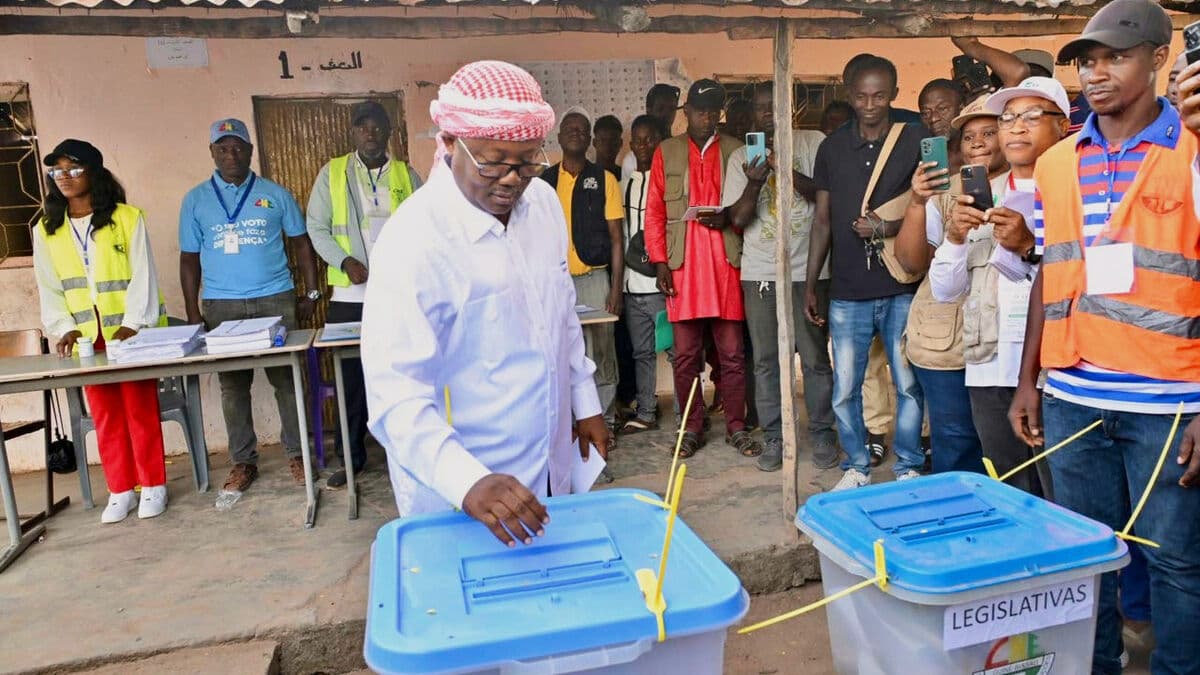Soldiers patrol the area around the presidential palace in the capital Bissau. Fewer people than usual move on the main road leading to the site, where gunfire broke out on Wednesday - after which military commanders announced on state television that they had taken over the country's rule.
On Thursday, the military's chief of staff, General Horta N'Tam, was sworn in as the new leader during what is described as a one-year transition period.
The takeover is a necessity to "stop operations that have threatened our democracy," he claimed during a press conference.
The coup comes just days after Sunday's presidential election. Both President Umaro Sissoco Embaló and opposition leader Fernando Dias had declared victory and the situation was tense ahead of the first official results expected on Thursday.
Both candidates have been reported to be in custody, but late Thursday Senegal stated that Umaro Sissoco Embaló was now in the country, which Guinea-Bissau borders to the north.
According to a statement, the president was taken to Senegal on a Senegalese military plane, and he is said to be doing well.
The opposition had then accused the president of having staged the coup.
Umaro lost the election and instead of accepting the results, he fabricated a coup d'état, said a released Fernando Dias on Thursday, urging his countrymen to resist.
Advertisement
As recently as October, the army said it had stopped a number of officers' attempted rebellion in the notoriously unstable country.






